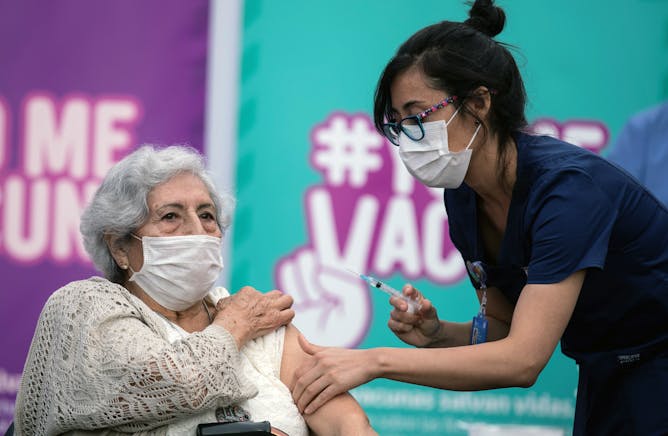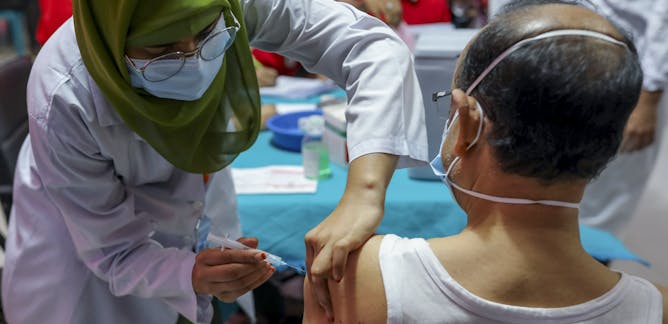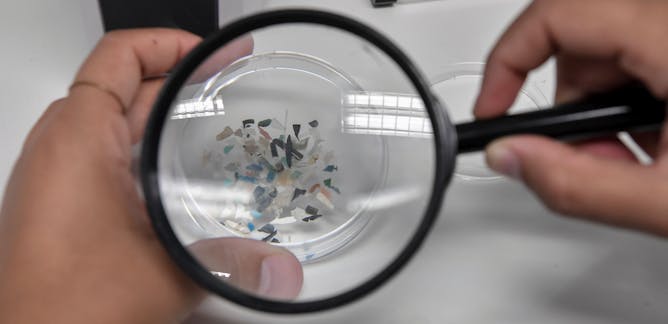|
|
|
|
The big western economies have dominated the COVID vaccine market, but rubbing shoulders with them – somewhat unexpectedly – is Chile. It’s secured enough doses to cover its population twice. While others have paid to get to the front of the queue, Chile has shown that you don’t have to be rich to emerge a winner in the vaccine race. It’s secured doses through canny bargaining, cutting deals with multiple providers and hosting vaccine
trials.
So far, more than 100 million vaccines against COVID-19 have been administered. Only about 200,000 (0.2%) have been in Africa. This unequal distribution has led to angry questions about how vaccines are being procured, and what can be done to close the gap. But some people are also pointing fingers at developing countries themselves for failing to secure decent prices and access to the drugs. In the case of South Africa, Keymanthri Moodley and Theresa Rossouw argue, the country failed abysmally to take advantage of the fact that it participated in vaccine trials. Sponsors, researchers and research ethics committees had an obligation to negotiate post-trial access, especially in a pandemic.
In a number of wealthy countries, the number of COVID-19 vaccines ordered vastly exceeds what’s needed, while many poorer countries will have to wait – possibly for years – for vaccines to become widely available. Robin Cohen considers how the excess vaccines might be redistributed.
|
Rob Reddick
Commissioning Editor, COVID-19
|

|
|

EPA-EFE
Veronica Diaz-Cerda, Aston University
Chile made a strong case for price reductions, cut deals with multiple providers and participated in trials for early access.
|
|
|

Keymanthri Moodley, Stellenbosch University; Theresa Rossouw, University of Pretoria
Negotiating for the fair treatment of study participants and benefit sharing before a study commences does not constitute an unfair inducement. It is an ethical imperative.
| |

Robin Cohen, University of Oxford
Countries may or may not choose to give their share doses to Covax, but regardless, redistribution needs to be driven by need.
|
|
|
Environment + Energy
|

Alexandra McInturf, University of California, Davis; Matthew Savoca, Stanford University
As more and more plastic trash permeates the oceans, fragments are making their way into fish and shellfish – and potentially into humans.
| |

Tafadzwa Mushonga, University of Pretoria
Forest rangers were subjected to occupational violence by their employers. This in turn can provoke a violent reaction to illegal activities, resulting in violent policing tendencies.
|
|
|
Education
|

Louis-Etienne Dubois, Ryerson University
What if one of the answers to the challenges of distance learning was to go back to basics and set up less "tech" and more human contexts?
| |

Lucinda McKnight, Deakin University
Our children should no longer be taught formulaic writing. Writing education should encompass skills that go beyond the capacities of artificial intelligence.
|
|
|
En Français
|

Jean-Yves Goffi, Université Grenoble Alpes (UGA)
Il n’est pas toujours évident de cerner le transhumanisme. Faut-il distinguer ce mouvement du post-humanisme, autre courant de pensée avec lequel il semble pourtant avoir beaucoup en commun ?
| |

Jean-Marie Cardebat, Université de Bordeaux; Benoît Faye, INSEEC Grande École; Florine Livat, Kedge Business School
Une étude montre que c’est l’angoisse liée à la situation économique, plus que le stress généré par le virus, qui augmente le risque de comportements addictifs.
|
|
|
En español
|

Eva Alcón Soler, Universitat Jaume I
No resulta razonable, ni inteligente, desperdiciar la mitad del talento de la población mundial y, menos, ante desafíos tan profundos como la transformación digital, la nueva transición verde o el despegue de la inteligencia digital.
| |

Juan Moisés de la Serna, Universidad Internacional de Valencia
Estos profesionales son cada día más demandados por culpa de la pandemia, pero su número es a todas luces insuficiente.
|
|
|
| |
| |
| |
| |
| |
| |
|
|
|
|
|
|
|